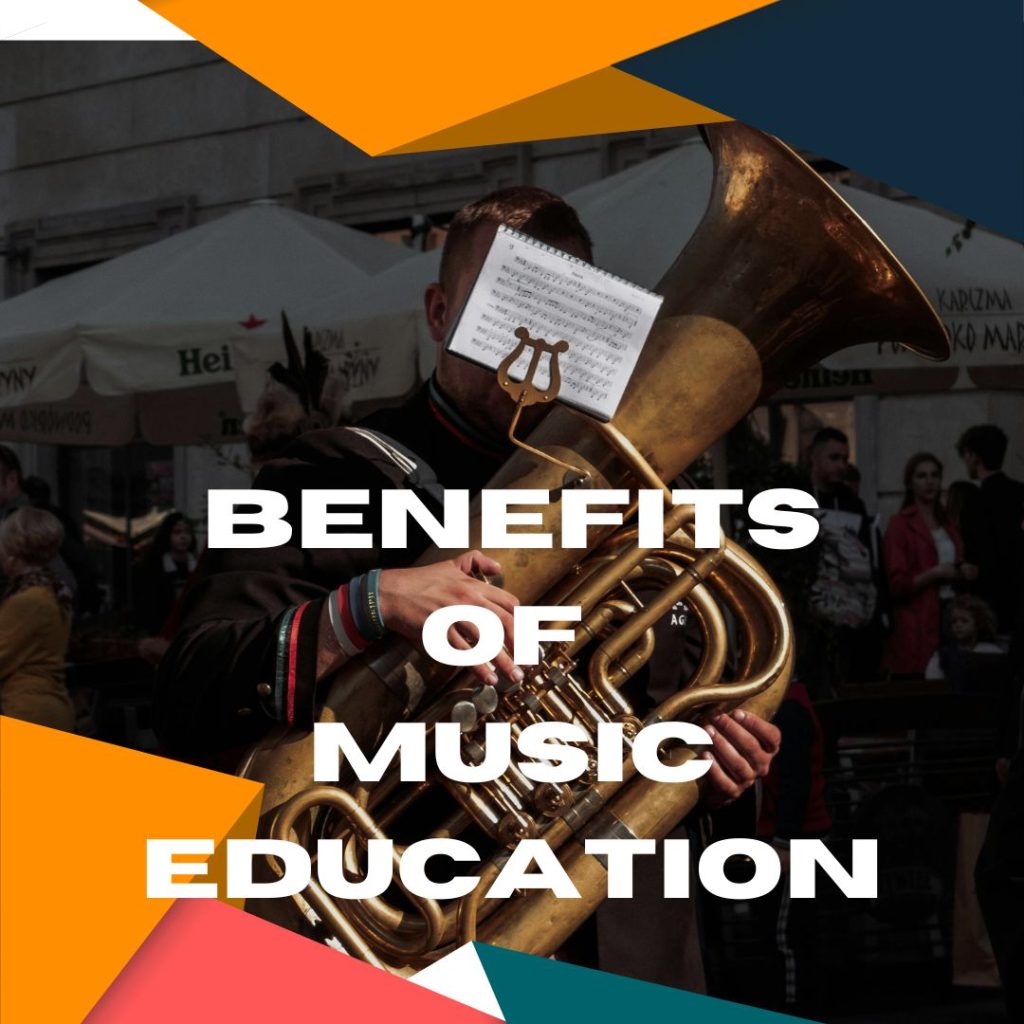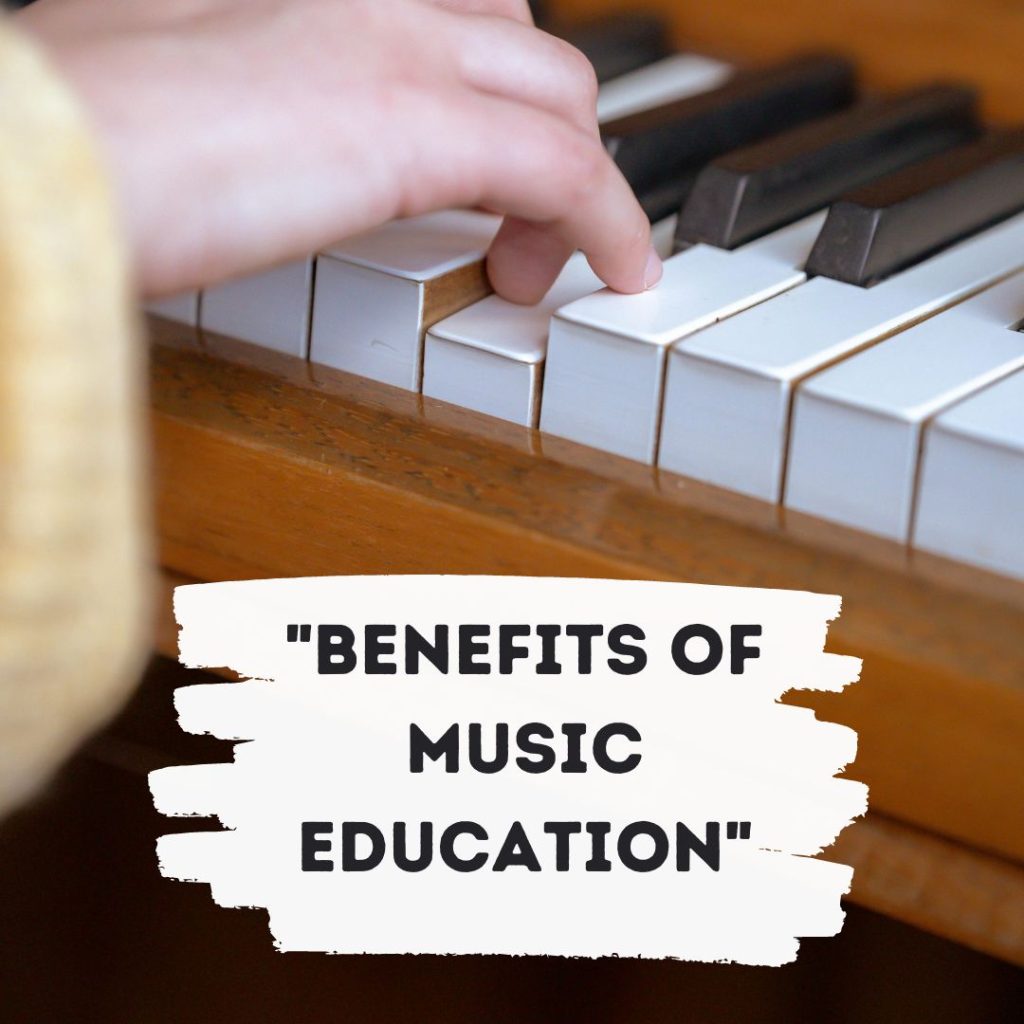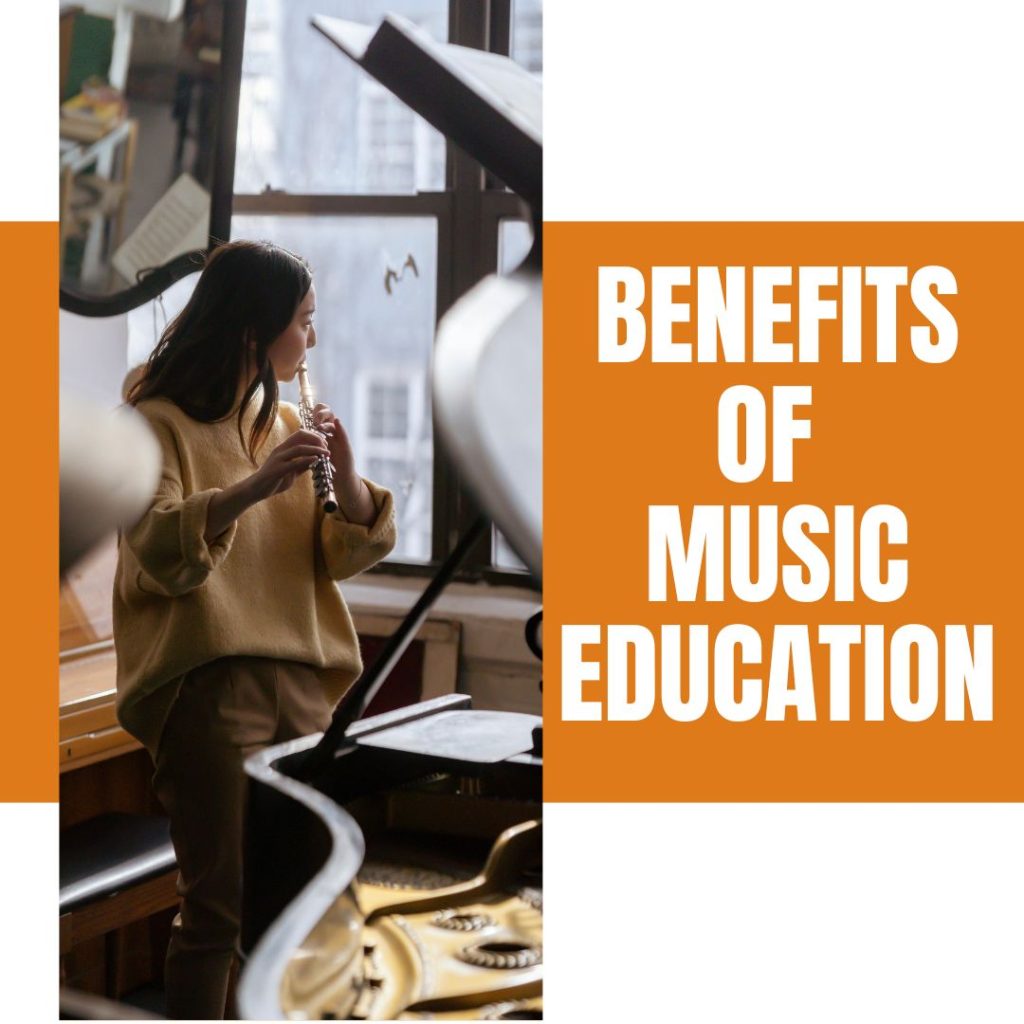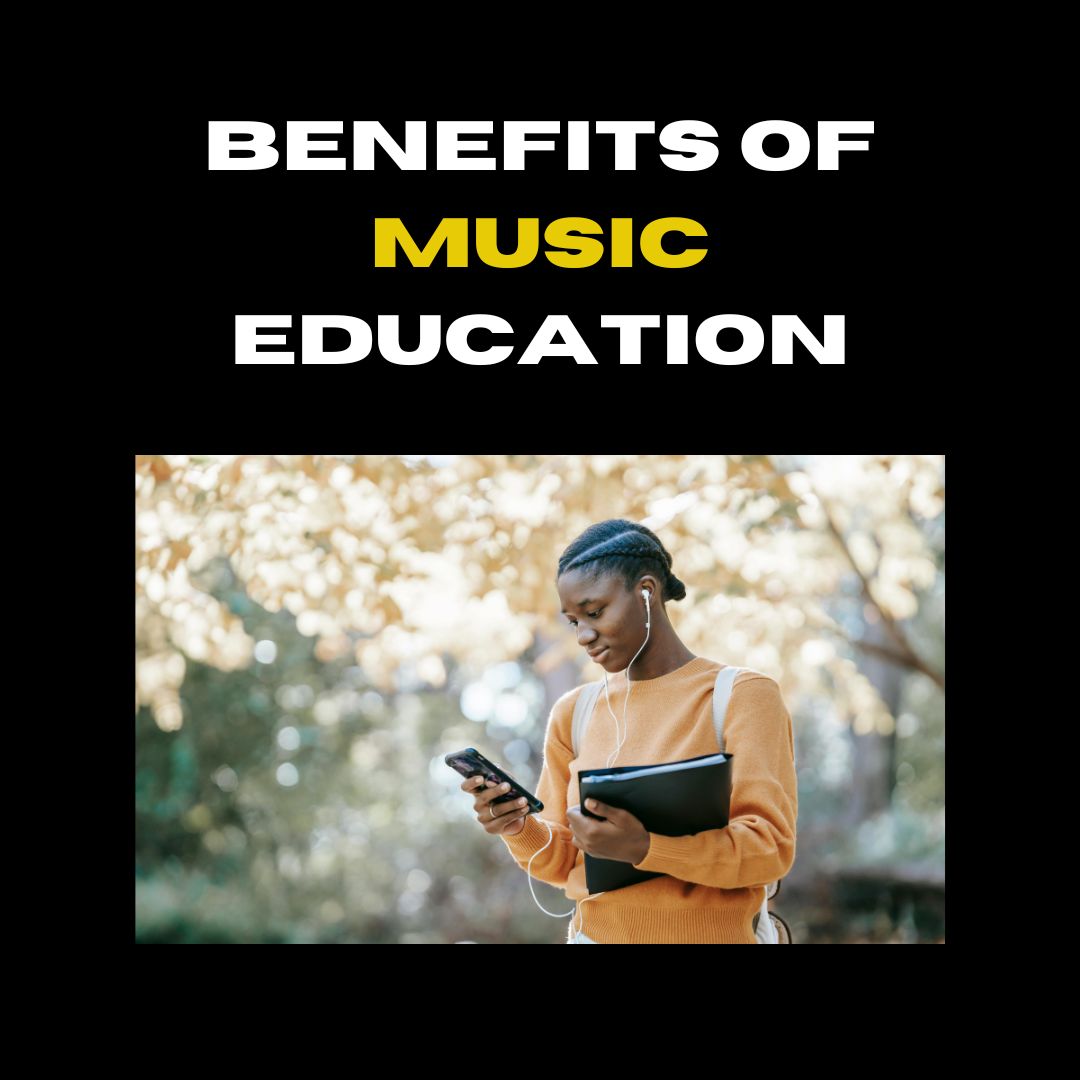Benefits of Music Education for Grow your Better Creative Power
Benefits of Music education enhances cognitive skills and fosters emotional growth. It creates a foundation for social development and discipline.
Engaging in music education can dramatically transform a person’s life, both academically and personally. Studies have repeatedly shown that students who receive music instruction tend to excel in other areas of education, indicating a strong correlation between musical study and academic achievement.
The benefits extend beyond the classroom; music education promotes teamwork, self-esteem, and the ability to convey emotions more effectively. It also cultivates creativity and provides a constructive outlet for self-expression. As a result, those who study music often experience personal growth that positively impacts their day-to-day social interactions. For parents and educators seeking to provide a well-rounded education, incorporating music programs is a smart strategy for developing well-equipped, successful students.
Harmony In Learning: Music’s Impact On The Brain
Dive into the melodious world of music education and discover the extraordinary ways it enhances brain functionality. Music, far from being just a form of entertainment, is a key player in cognitive growth and neurological enhancement. Let’s explore the symphony of benefits that music brings to our brains.
Cognitive Development Through Melody
Melodies do more than tug at our heartstrings. They stimulate our brains. This stimulation leads to remarkable mental development. Children exposed to music often show improved memory, attention, and problem-solving skills.
- Enhanced language abilities
- Increased memory capacity
- Better multitasking skills
Complex tunes challenge the brain. Such challenges boost intellectual growth. Music involvement from an early age sets the stage for advanced academic achievements.
Neurological Advancements Sparked By Rhythm
Rhythm isn’t just about keeping the beat; it’s about building brain power. Engaging with rhythm can lead to notable neurological progress.
| Brain Function | Impact of Rhythm |
|---|---|
| Motor Skills | Drums and other rhythm instruments refine motor skills. |
| Pattern Recognition | Recognizing beats hones pattern recognition capabilities. |
| Timing and Sequence Processing | Rhythmic patterns improve understanding of timing and sequences. |
Music requires precise coordination. It demands the brain to process multiple streams of information. Playing instruments synchronizes the auditory, motor, and visual brain regions, leading to strengthened brain architecture.
Studies indicate that regular rhythm exercises may even help in healing damaged brain tissues. This type of therapy shows promise in stroke and trauma recovery.

The Symphony Of Skills: What Music Teaches
Imagine a world filled with sounds that create harmony. This is what music education offers but goes beyond by teaching a symphony of skills. Let’s explore the essential abilities children gain through learning music.
Fine-tuning Motor Skills
Music education plays a vital role in developing fine motor skills. It’s like a gym workout for the hands and fingers. Playing an instrument like the piano or violin requires precision and coordination. This helps in:
- Boosting dexterity and hand-eye coordination
- Strengthening muscle memory
- Enhancing timing and rhythm
Research shows that children who play instruments can refine their motor skills even more than those who don’t. These skills are not just musical; they help in all sorts of daily tasks.
Building Blocks Of Language Mastery
Music and language are deeply connected. Music education introduces kids to new sounds and patterns, acting as a bridge to language proficiency. It lays down the foundation for:
- Understanding syllables and phonics
- Enhancing listening abilities
- Expanding vocabulary
It’s no secret that rhythms and melodies can improve memory. Kids remember songs, which helps them to remember new words as well. Singing and playing tunes can make mastering a language feel more like play and less like work.
Rhythms Of Resilience: Emotional And Social Benefits
Music education unlocks more than just rhythm and melodies—it opens a world of emotional and social growth. Children gain the gift of understanding their feelings, and they learn to work with others. Let’s explore how tunes and harmonies build emotional intelligence and social skills.
Emotional Intelligence: The Art Of Feeling Through Music
Music serves as a bridge to emotions. Children learn to recognize feelings in music and themselves. This recognition helps in many ways:
- Identifying Emotions: Through music, children can name what they feel.
- Expressing Themselves: Kids use music to share their inner world.
- Empathy: They understand how others feel by listening together.
Studies reveal that kids involved in music score higher in emotional intelligence tests. They manage stress well and show kindness. These kids shine in tough times.
Social Harmony: Ensemble And Teamwork
Group performance is like a teamwork playground. Every member counts. Kids learn about:
- Listening: Not just to music, but to each other’s ideas.
- Cooperation: Working together makes their music sound great.
- Responsibility: Each child is key to the group’s success.
Joining a band or choir teaches kids to connect. They cheer each other on and celebrate together. This unity builds friendships that last.
From Notes To Noteworthy: Boosting Academic Performance
Grasping a musical instrument can do more than produce melodies—it’s a catalyst for brainpower that transcends the music room. Children engaged in music education often experience a remarkable upswing in academic performance. Let’s explore the unexpected ways music harmonizes with core subjects like math and language arts.
Math And Music: A Surprising Connection
Did you know that music and math are closely knit? Understanding beats, rhythms, and scales requires counting and recognition of patterns—core components of mathematics. Here is a <strong>simple breakdown of how music intertwines with numerical prowess:
- Rhythmic patterns boost abilities to solve math problems.
- Music notation offers a new way to understand fractions.
- Keeping the tempo requires a steady count, enhancing timing and division skills.
A study compared students with music training against those without. Results highlighted better grades in math for those who studied music, emphasizing its impact on arithmetic.
Linguistic Leaps: How Music Supports Language Arts
Music’s melody carries the power to fortify language and reading abilities. Here’s how:
- Songs improve vocabulary through lyrics and storytelling.
- Listening skills are honed, which is crucial for language comprehension.
- Memory enhancements made through musical training aid in language recall.
Research underlined that kids involved in music showed more advanced reading skills. With a solid musical foundation, students opposed challenges in language arts with greater confidence and success.
The Creative Chord: Fostering Imagination And Innovation
The Creative Chord: Fostering Imagination and Innovation resonates with the core of music education. Engaging with music allows students to express themselves creatively. It also encourages the exploration of new ideas and perspectives.
Improvisation And Creative Problem Solving
Improvisation in music is akin to thinking on your feet. Students learn to adapt quickly to musical challenges. They develop key problem-solving skills. This transfers to other areas of life.
- Quick Thinking: Reacting to unexpected changes in music.
- Adaptability: Modifying melodies or rhythms on the spot.
- Resilience: Overcoming musical mistakes with confidence.
Composing Original Thought: Music As A Creativity Catalyst
Composing music nurtures original thought. Students transform ideas into aural experiences. They become inventors of sound. This process boosts their creative abilities.
| Activity | Creative Skill |
|---|---|
| Matching Melodies | Innovative Thinking |
| Harmonizing | Artistic Exploration |
| Rhythmic Patterns | Complex Problem-Solving |
The Cultural Crescendo: Understanding Diversity Through Music
Music education offers more than just learning notes and melodies. It opens a world where cultures meet and speak a common language. Through rhythm and song, students embark on an exciting journey to diverse traditions and practices. They celebrate the rich tapestry of our world’s cultural heritage. Music becomes a bridge connecting individual stories across the globe. This journey fosters a deep appreciation for the vast array of human expression.
Exploring World Cultures
With a tune, we travel across continents and seas. Music classes often showcase sounds from many places. Students may handle drums from Africa or strum a Spanish guitar. Each lesson is a new stamp in their cultural passport. The vivid stories behind each melody enrich their worldview. Here’s how music education explores world cultures:
- Global Sounds: Introducing musical instruments and genres from different regions.
- Historical Context: Discussing the origins and evolution of musical styles.
- Artist Spotlights: Celebrating influential musicians from varied backgrounds.
Promoting Inclusivity And Tolerance
We can find harmony in diversity. Music education teaches respect and empathy. Students learn to appreciate differences and similarities among cultures. Workshops with collaborative performances are common. Young musicians discover their shared passion for music. They develop social skills while learning from each other. The lessons in acceptance go beyond the classroom. Let’s see the key aspects:
- Cross-cultural Collaborations: Students create music with peers from diverse backgrounds.
- Social Awareness: Recognizing and respecting different cultural expressions.
- Empathy Building: Understanding and feeling the emotions conveyed in music.

In Tune With Technology: Integrating Music And Digital Learning
Music education has leaped into the digital age. It blends tunes with tech, bringing a world of opportunities to young learners. Students explore musical concepts while mastering technology. This empowering mix prepares them for a future where digital proficiency is key. Let’s discover how music intertwines with digital tools to enhance learning.
The Digital Orchestra: Software And Apps
The shift towards digital aids provides a vast toolkit for students. Music education now includes exciting software and apps. These tools simulate instruments, teach theory, and track progress. They offer interactive experiences differing from traditional methods.
- Virtual Keyboards allow students to play pianos on their devices.
- Music Theory Apps simplify complex lessons into fun, engaging activities.
- Rhythm Trainers guide learners through the nuances of beats and measures.
- Recording Software enables young musicians to capture and critique their performances.
Many apps provide instant feedback, helping students correct mistakes and improve quickly. Schools utilize these resources to tailor lessons to individual needs.
Streaming A Symphony: Online Collaboration Tools
Music education thrives on collaboration. Digital platforms now allow students to create music together from anywhere. This virtual environment fosters teamwork and cultural exchange.
| Tool | Use |
|---|---|
| Video Conferencing | Live sessions connect learners for rehearsals and feedback. |
| Cloud Storage | Students access and share sheet music or recordings securely. |
| Collaborative Playlists | Classmates contribute to a collective library of musical pieces. |
| Online Workspaces | Groups work on projects using shared digital areas. |
These tools bridge distances, connecting classrooms around the globe. Students work with peers they might never meet otherwise. They explore new perspectives within music, helping grow their understanding and skill.
Harmonizing Health And Wellness: Music’s Therapeutic Effects
Exploring music goes beyond melodies and harmonies. It reaches deep into our well-being. Music has the power to heal, soothe, and bring balance to our lives. The benefits of music education extend far beyond the classroom or stage. Let’s delve into how music can be a pillar of our health and wellness.
Soothing Sounds: Music For Stress Relief
Calming tunes reduce stress. They slow our heartbeat and help our bodies relax. In this fast-paced world, turning to music is a natural and effective way to cope with stress From the soft strumming of a guitar to the gentle hum of a violin, music brings tranquillity.
- Lower heart rate
- Reduced anxiety
- Enhanced mood
Harmony In Healing: Music Therapy In Practice
Music therapy is a professional practice where therapists use music to promote healing and improve quality of life. It includes creating, singing, moving to, and listening to music. Research shows that music therapy can treat various health conditions.
| Condition | Benefits of Music Therapy |
|---|---|
| Depression | Promotes emotional release |
| Dementia | Improves memories and cognition |
| Chronic Pain | Provides pain relief and distraction |
A Universal Language: Bridging Lives Through Music Education
Music education opens doors to a world where language is not a barrier. Through notes and harmonies, people connect and understand each other. Music travels across borders, carrying messages that words sometimes cannot. It serves as a bridge, weaving a web of shared experiences that span cultures and continents. Let’s explore the benefits of music education and how it can act as a global communicator.
Cross-cultural Communication Through Melodies
Sounds and rhythms speak to hearts worldwide. Here’s how music education promotes cross-cultural dialogue:
- Cultural exposure: Learners discover diverse sounds and stories.
- Emotional resonance: Music evokes universal feelings.
- Language learning: Students often pick up new languages.
- Tolerance building: Understanding through shared musical experiences fosters respect.
Music As A Global Connector
Music brings people together, creating a sense of global community. Here are some reasons why:
- Inclusive environments: Group performances break down social barriers.
- International collaborations: Artists unite to produce unique sounds.
- Virtual exchanges: Technology allows real-time music-making across continents.
- Global festivals: Music celebrations attract diverse audiences and performers.
Through music education, individuals learn more than notes and scales; they learn about empathy, unity, and the shared human experience.

Charting Future Symphonies: Long-term Career Prospects
Embarking on a journey in music education is not just about honing creative talents. It opens up a world of future career pathways, ripe with opportunity for skilled musicians and educators. Let’s explore the diverse career options that await those who choose to weave music into their professional tapestry.
Setting The Stage: Music Industry Opportunities
- Performance Artists: Gracing stages worldwide, transforming passion into livelihood.
- Music Producers: Shaping sounds behind the scenes, creating audio masterpieces.
- Sound Engineers: Merging technology with talent to perfect acoustic experiences.
- Music Therapists: Healing hearts and minds with the power of melody and rhythm.
- Arts Administration: Steering the music ecosystem from an operational standpoint.
Educating Future Maestros: Music Teaching Pathways
The gift of music transcends performance; it can be shared and nurtured in others through teaching. Music educators take on the vital role of guiding the next generation, ensuring the continuity of musical excellence.
- Private Tutoring: Offering one-on-one lessons, tailoring instruction to individual students.
- School Music Teacher: Inspiring young minds in a classroom setting, spanning all educational levels.
- Music Director: Leading ensembles, choirs, and bands, shaping collective harmony.
- Online Music Coach: Utilizing digital platforms to teach globally, breaking geographical barriers.
- Music Camp Counsellor: Combining music and mentorship, fostering growth in immersive environments.
Frequently Asked Questions For Benefits Of Music Education
How Does Music Education Enhance Brain Development?
Music education stimulates brain development, specifically improving areas responsible for language acquisition, reading skills, and mathematical learning. Music activates neural pathways, promoting cognitive growth and adaptability in students.
Can Music Lessons Improve Academic Performance?
Yes, music lessons can contribute to better academic performance. Engaging with music improves memory, attention, and organizational skills. These benefits translate into enhanced academic abilities across various subjects.
What Are The Social Benefits Of Learning Music?
Learning music fosters social skills by encouraging teamwork, communication, and empathy. Group performances and musical collaborations build a sense of community and belonging among learners.
Is Music Education Linked To Increased Iq Levels?
Studies indicate that music education may lead to a slight increase in IQ levels. Regular musical training can enhance abstract reasoning skills, which are fundamental components of general intelligence.
Conclusion
Embracing music education reaps rewards that resonate for a lifetime. It fosters cognitive development, enhances social skills, and nurtures creativity. Let the power of music unlock your potential, enriching your life both academically and personally. Begin your melodic journey now, and witness the symphony of benefits unfold.







